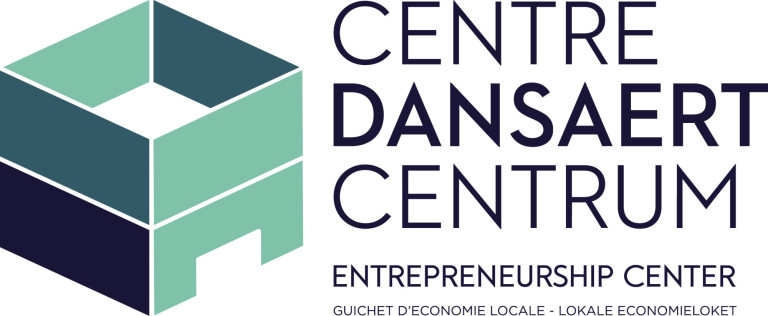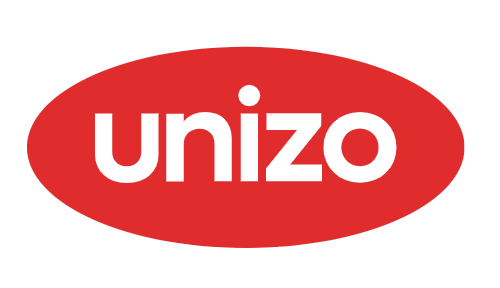You have always dreamed of starting a restaurant or café. You have often imagined what it would look like, what it would serve, and who you might meet over a drink. And then, one day, you make the decision - you are going for it! But where do you begin?
Here is an outline of the order in which you should go about things, to make the task of setting up a sustainable restaurant as easy as possible and give yourself the best possible chance of success.
Deepen your concept
What do you want to create? What type of cuisine will you be offering? In what kind of atmosphere? For which customers?
Your ideas don't have to be revolutionary - there are probably too many ".... bars" already! - but before you go any further, you need to be able to talk in practical terms about the food, the atmosphere and the other ideas you want to implement. Luckily for you, this is the fun part, as it allows you to brainstorm and dream up everything you want to do without worrying about what's realistic and what's not. You've probably already got a lot of ideas, but now it's time to put them down on paper.
OUR TIPS ON BEING A BRAINSTORMING PRO:
- Be inspired by what already exists and what you like, whether a concept abroad, dishes you tasted in a restaurant, a recipe book or local products you like;
- Spend a lot of time discovering other places and get into the habit of noting down everything that appeals to you;
- Once you've picked up enough inspiring ideas, create moodboards for each theme of your future venue:
- cuisine/menu: what will you serve?
- visual identity and communication: what will your image be like?
- decoration and ambience: what will the place look like?
Certain tools can help you get through this stage with flying colours!
- Pinterest is a great tool for hunting down inspiration and finding it all in one place. Create inspiring boards with whatever you like.
- Write down in a notebook or on a note-taking app everything that catches your eye when you discover somewhere: good ideas, what not to do, how many people work there, what the opening hours are, what the decoration is made of, whether the menu changes regularly, etc. Keep your notes organised!
- Create your moodboards with your 10 favourite elements directly in PowerPoint or Google Slides: it's easy to use and lets you enhance them however you like.
Network and understand the ecosystem you're entering
Do you have experience in the hotel and catering industry? Great, you certainly know exactly what you're talking about and you know the ropes. Chances are you also know other people in the industry.
Don't worry if you don't have any experience. Just be careful not to idealise the profession and prepare yourself properly for what lies ahead. Ideally, you should spend some time working in another location, so you can learn what happens in the field. If this isn't possible, try to make as many contacts as possible in the sector, as this will help you avoid making mistakes, get in touch with communication relays, create partnerships, meet suppliers or even find your future premises. The good news in Brussels is that sustainable food is a small, caring community where you'll be given a helping hand.
Whatever your situation, it's important to put your ideas and your project to the test from the outset and to continue to do so throughout the development of your project.
Here are a few tips for networking in Brussels and meeting lots of great entrepreneurs like you:
- Co-oking is a shared kitchen that organises monthly meetups of Brussels-based food entrepreneurs.
- RABAD is a network of Brussels food organisations and individuals that organises many events each year.
- Brussels' culinary schools may give you the opportunity to meet your restaurant's future chef. Take a look at Ceria or the EFP.
- Horeca Be Pro is the reference centre for horeca training in Brussels.
- All entrepreneurship training courses are also an opportunity to meet future entrepreneurs: Greenlab, Crédal and JobYourself will act as relays to the people you want to meet.
- If you are looking to meet producers, then the Biowallonie or Bioforumvlaanderen directories will be a great help.
Develop your project and see the bigger picture
The networking stage obviously runs in parallel with everything else. Once your concept is clearer, you can start planning your launch. You'll need to work on both your strategy and your financial forecasts.
To establish your strategy, start with a Business Model Canvas, a tool widely used by entrepreneurs of all kinds. It will give you an overview of the project and the stakes involved in the different choices you'll be making.
There are four steps in determining your financial forecast:
- Based on the menu you've created, you can create recipe cards that are as complete as possible. Linking your revenue to actual supplier prices enables you to calculate your food cost and determine the margin you can make on each product sold. To determine sales prices, compare your dishes with those of the places that inspire you. This will give you a good range of acceptable prices for your customers.
- Determine the future fixed costs of your establishment, such as rent, electricity, water, employees, accountant and insurance. These will initially be imaginary but they will enable you to check your figures and adapt them when the opportunity for a real location arises. Once again, use the experience of your network or enlist the help of an experienced organisation to get a rough idea of the figures involved.
Please note that when calculating your rent, take into account the - very - many months of rental during which you will have to wait for the outcome of your planning permission application! - Based on your margins and expenses, you'll be able to determine the number of dishes you need to sell per week to be profitable. Is the figure you've arrived at realistic? If not, what can you improve to make it so? In all cases, compare your results with your sources of inspiration: does the planned number of employees seem logical? Does the number of covers/customers per day seem reasonable?
- Finally, draw up a financing plan: what do you need to get started on Day 1 (communication tools, furniture, cash register, small kitchen equipment, etc.)? How much will that cost you? And, of course, how are you going to finance these investments?
This step is the most complicated part because you'll realise that you're basing a lot of what you do on assumptions. The most important thing is to understand your figures and be able to adapt them quickly to the opportunities you come across.
If you're afraid to get stuck into numbers or strategy on your own, contact a support structure:
- Business Model Canvas workshops are held regularly in Brussels.
- Crédal has been working with sustainable restaurants and cafés for several years. Go and meet them!
- If you're on a budget, a number of creative culinary agencies can help you with your project and save you a lot of hassle thanks to their experience: Eureka, Studio Faim, Innovative cuisine, etc.
Meet your future customers
Once your project looks good on paper, it's time to meet your potential future customers. This will allow you to:
- test the dishes you want to offer, the customer reaction to prices and your initial communication channels.
- create excitement around the project and - who knows - a committed initial community.
- test a district's customer potential in a real-life situation.
The aim is to validate your hypotheses and build up an initial customer base. So be creative!
- Organise 'tables d'hôtes' and observe your guests' reactions;
- Take part in private events and showcase your cuisine;
- Organise a crowdfunding event and discover the project's potential;
- Take part in a pop-up to test yourself in a real-life situation for a few months.
Train and get off to a good start
Throughout your creative process, get training and get anything that worries you out of the way as quickly as possible.
- First of all, find out which municipalities have decided to restrict the opening of hotel and catering establishments in certain districts, with the aim of diversifying the commercial offer.
- Can't access the profession? Quickly determine what you can and can't serve, or find a partner.
- Does the FASFC scare you? Take a training course and make sure that you comply with the rules.
- Do you not have any business management skills? The Brussels Economy & Employment syllabus will help if you're the self-taught type or are also taking a training course on the subject.
- Don't know what insurance and permits you need to get started? Contact an insurance broker, Brussels Environment and the horeca federation. Also read the 1819 articles on planning permission and insurance.
The most important thing is not to leave any grey areas that will weigh you down mentally. Proceed methodically, one step at a time, as you develop your project. If you're lucky enough to launch the project with several other people, divide up the tasks and become even more compatible.
Plan your launch
Does everything now seem clear in your head? Are you sure you're ready to take the plunge? Here are the final steps:
- During the last two to three months before you launch your business, check your financial plan with banks to get an agreement in principle on a loan if you need one.
- Prior planning permission is required for any new catering business. The procedure can take up to a year or longer, depending on the municipality! If you're taking over a catering business, make sure it has the specific planning permission you need: café? snack bar? pizzeria? bar? restaurant?
- To find a venue, consult Inventimmo, the database dedicated to professional property in Brussels. But beware: this and similar property sites do not check the existing planning permission on the properties advertised. Don't believe the owner, the estate agent or the former operator. There's only one reliable source: visit your local town planning office.
A good tip is to look for a property that already has the exact planning permission you need. You'll save yourself months of procedures, as well as possible disappointment. - Hub Brussels Retail team can help you set up your business.
- Plan your launch communication, rally people around your project and make your opening a success. This is the right time to launch a crowdfunding campaign.
- Find an accountant who believes in your project and is prepared to support you on this adventure.
- Submit your applications to the Region's different registers to help you get started: OpenSoon helps you pay your first rent, while Village Finance supports circular economy projects. Make sure you are aware of the employment aid available.
- Get your company number from a business counter.
Let's go! The first few weeks after your launch will be intense: unforeseen events, joys and scares will be part of your daily routine.
You will no doubt have put off your administrative and financial management as long as possible in favour of the day-to-day organisation. But take the time you need to go back and check: do your results match your forecasts? If not, how can you remedy the situation? After the launch, ongoing monitoring by a support structure may be essential to encourage you to take stock on a regular basis.
Who can help me ?





